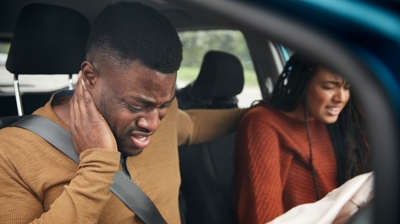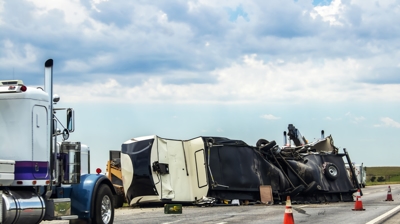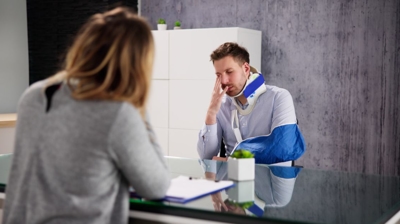Buses are often seen as a safer alternative to cars. They’re large, sturdy vehicles that transport millions of people every year—whether it’s daily commuters, students heading to school, or travelers on a long-distance route. But while buses are designed to prioritize safety, accidents still happen, and when they do, the results can be devastating. Understanding your rights is crucial if you’ve been in a bus accident.
Are Buses Really Safer Than Cars?
Studies show buses tend to have lower crash rates than passenger vehicles. This is largely because professional drivers operate buses, travel less frequently at high speeds, and are built to withstand significant impacts. For example:
- Fewer Fatalities per Mile: Bus passengers are statistically less likely to be involved in fatal accidents than cars.
- Built-in Safety Measures: Features like large size, reinforced frames, and a higher center of gravity can protect passengers in most crash scenarios.
- Professional Drivers: Licensed and trained to handle different road conditions, bus drivers are held to higher driving standards than everyday motorists.
However, while the numbers may paint buses as a safer option, that doesn’t mean they’re without danger. Bus accidents often involve multiple vehicles or pedestrians, amplifying the severity of the crash and injuries.
What Causes Bus Accidents?
Bus accidents happen for many of the same reasons as any other vehicle crash, but their size and purpose add unique risks. Here are some of the most common causes:
1. Driver Fatigue or Negligence
Bus drivers are responsible for the safety of all passengers on board. They often work long hours or through difficult conditions. Fatigue, distracted driving, or even reckless behavior can significantly increase the likelihood of an accident.
2. Poor Vehicle Maintenance
Buses, especially those owned by public or private transportation companies, require frequent inspections and regular upkeep. Faulty brakes, worn-out tires, or mechanical failures can lead to disastrous consequences.
3. Weather Conditions
Large vehicles like buses can be trickier to maneuver during rain, snow, or fog. Slippery roads and reduced visibility make it harder for drivers to safely control or stop buses in time to avoid a collision.
4. Other Drivers
Not all bus accidents are the fault of the bus operator. Other drivers may speed, cut off a bus, or drive recklessly, leading to collisions. Because buses make frequent stops, cars driving too closely are also prone to rear-end crashes.
5. Improper Loading
Uneven or overloaded buses can tip over or lose balance, especially for charter or long-distance buses, causing severe accidents.
6. Pedestrian or Cyclist Interactions
Urban areas often see accidents between buses and pedestrians or cyclists, who may stray into blind spots or ignore traffic rules.
Regardless of what caused the crash, the aftermath can severely impact you and others involved in terms of physical, financial, and emotional tolls.
What to Do If You’re Injured in a Bus Accident
If you're hurt in a bus accident, the steps you take afterward can make a big difference in protecting your rights and ensuring you get the support you need. Here’s what to keep in mind:
- Seek Medical Attention Immediately. Even if you feel okay, some injuries—like whiplash or internal trauma—may not show symptoms right away. A medical evaluation documents your injuries, which is critical for your case.
- Report the Incident. Whether to the police, transportation authority, or the bus operator, make sure an official report is filed.
- Gather Evidence. Photos of your injuries, the accident scene, or damage can be essential. Collect contact information from witnesses and keep a detailed record of what happened.
- Don’t Admit Fault. It’s human nature to apologize, but saying too much about the accident could unintentionally weaken your case later.
Once you’ve taken these steps, contacting a personal injury attorney should be next.
How a Personal Injury Attorney Can Help
Navigating the complexities of a bus accident case can be overwhelming, especially when multiple parties are involved—like the bus company, government agencies, or other drivers. A skilled personal injury attorney is invaluable during this time and can assist you in several ways.
Investigating Liability
Bus accident claims can be more complicated than a typical car accident, especially when it’s unclear who’s at fault. Your attorney will dig into the details—gathering crash reports, reviewing maintenance records, and examining driver or company negligence.
Handling Insurance Companies
Bus companies and insurers often have legal teams working to minimize payouts. Your lawyer will negotiate on your behalf to ensure that you’re treated fairly and receive the compensation you deserve.
Ensuring Compensation
From medical bills and lost wages to emotional pain and suffering, a personal injury lawyer will fight to recover the full scope of damages you’ve incurred. They’ll also consider long-term impacts, such as ongoing care or loss of earning capacity.
Guiding You Through the Legal Process
Every state has its own rules, statutes of limitations, and procedures. An experienced attorney will make sure that your claim meets these deadlines and won’t leave any critical details overlooked.
Know Your Rights
Being involved in a bus accident can feel unsettling, especially when faced with mounting medical bills, questions about liability, and the emotional fallout of your injuries. But you aren’t alone. If someone else’s negligence caused your injuries or losses—whether it’s the bus driver, another motorist, or a transportation company—you have rights and options to pursue justice.
St. Louis Bus Accident Lawyers
In conclusion, understanding your rights and responsibilities after a bus accident is crucial for navigating the aftermath effectively. Whether you're seeking compensation or advocating for improved safety standards, having the right information can make all the difference. If you find yourself involved in a bus accident in St. Louis, MO, consider reaching out to NGK Law Firm for expert legal assistance. Our experienced personal injury attorneys are here to guide you through the process and ensure you receive the compensation you deserve. Contact us today at (314) 350-1900 to learn more about how we can help you.







